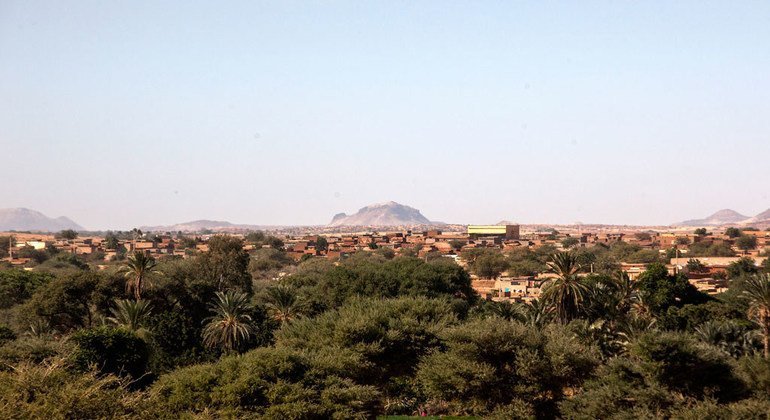North Darfur airstrike kills 12, flattens homes

Aerial view of Kutum in North Darfur (File Photo: Hamid Abdulsalam / UNAMID)
An airstrike on El Zurug, North Darfur, which is under Rapid Support Forces (RSF) control, claimed the lives of 12 people. Fire exchanges were heard in El Gezira and in several areas of Khartoum, Omdurman, and Khartoum North (Bahri). Fighting in central Khartoum has left most residents without power or water supply. Access to healthcare and essential goods is severely limited.
Yesterday, in a bombing in El Zurug, Kutum locality, North Darfur, at least 12 civilians were reported killed, and dozens of homes were destroyed. Local witnesses reported that most of the victims belonged to a single family.
In a statement issued yesterday, the RSF accused the Sudan Armed Forces (SAF) of targeting El Zurug. The region is under the control of the RSF and hosts one of its military bases in North Darfur.
In El Gezira, residents reported hearing heavy gunfire on Wednesday morning in Wad Madani, the state capital. The exchange of fire lasted for a brief period, accompanied by reports of sporadic gunshots heard in the southern part of the state.
In Khartoum, clashes persisted on Wednesday morning near the Armoured Corps and ammunition complex in El Shajara, western Khartoum. Simultaneously, the Sudan Air Force targeted RSF sites in southern Khartoum, and RSF artillery attacked the SAF General Command in central Khartoum and the Signal Corps in Khartoum North.
Residents said that heavy artillery continued to be heard on Wednesday afternoon near the SAF General Command, intermittently persisting until the evening. They observed rising columns of smoke in the El Taif area, eastern Khartoum, coinciding with army fire directed at nearby RSF locations.
In the same context, supporters of the SAF shared videos on social media claiming the army’s advance in the old town of central Omdurman, and Halfaya in Khartoum North. Meanwhile, RSF supporters broadcasted videos claiming victory over the army in Omdurman.
Living conditions
Residents in central Khartoum expressed concerns about a potential new wave of displacement due to frequent power cuts since the beginning of the conflict and a disruption in water supply for the past two weeks.
A resident of El Deyoum El Shargeya in Khartoum 3 told Radio Dabanga that the area has been without power since the onset of the conflict on April 15. Destruction of several electricity poles during the fighting has made repairs challenging. “The scale of destruction means that it will take a long time to repair the damage, even if the fighting stops. We have been relying on homes with solar panels for essentials.”
The resident further explained that water supply has been cut off for two weeks in most of central Khartoum, forcing residents to fetch water from a well dug by locals near a construction site. “However, the water is polluted and unsuitable for human use, and the cost of a water barrel from tankers has risen to SDG7,000, which is unaffordable for many given the current economic conditions.”
Shops in the area are closed, and locals are obtaining their necessities from Abu Hamama Market in El Hilla El Jedida, despite frequent bombardment in the vicinity, the resident said. The RSF is collecting transit fees from vehicles along the roads.
“Families get their needs from street vendors for fear of being attacked if they go to markets. However, prices at street vendors are double those in markets.”
The listener mentioned that most residents have fled, leaving only about 15 families “who could not escape”. The security situation was said to be calm in the area, which is under the control of the RSF. “Fire exchanges can be clearly heard near the General Command, and there are bodies are buried in public squares.”
Most health facilities in the area are reportedly non-functional, including El Jawda Hospital. “The only available facility is a basic laboratory south of El Jawda, offering only malaria and urine examinations.”
There are only three accessible hospitals in the area, all for-profit, the resident said. “Most people rely on volunteer doctors conducting examinations in their homes and medicines are difficult to obtain, as most pharmacies are closed.”











 and then
and then